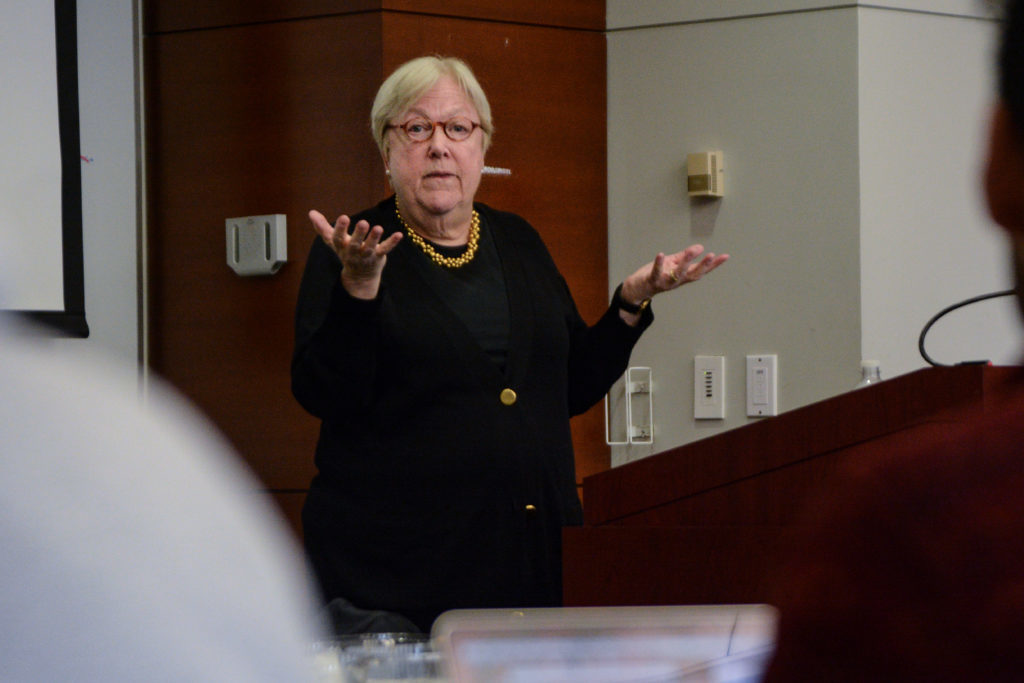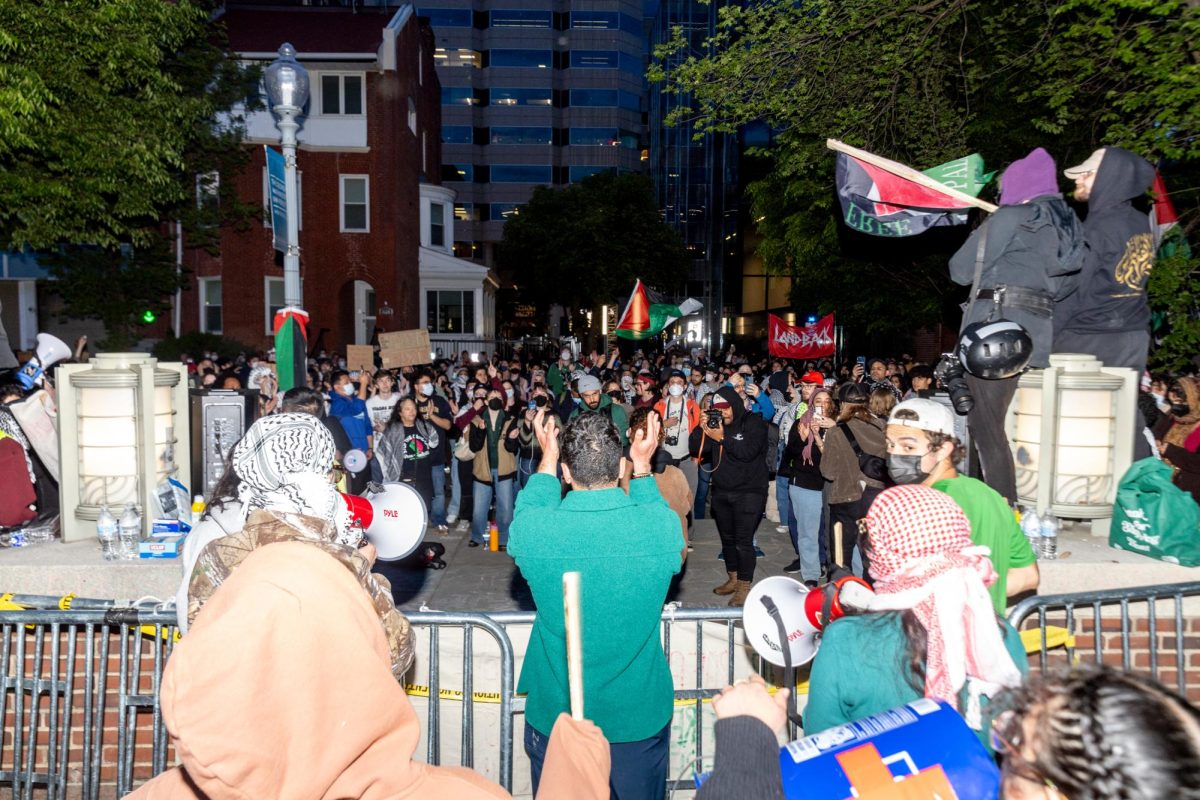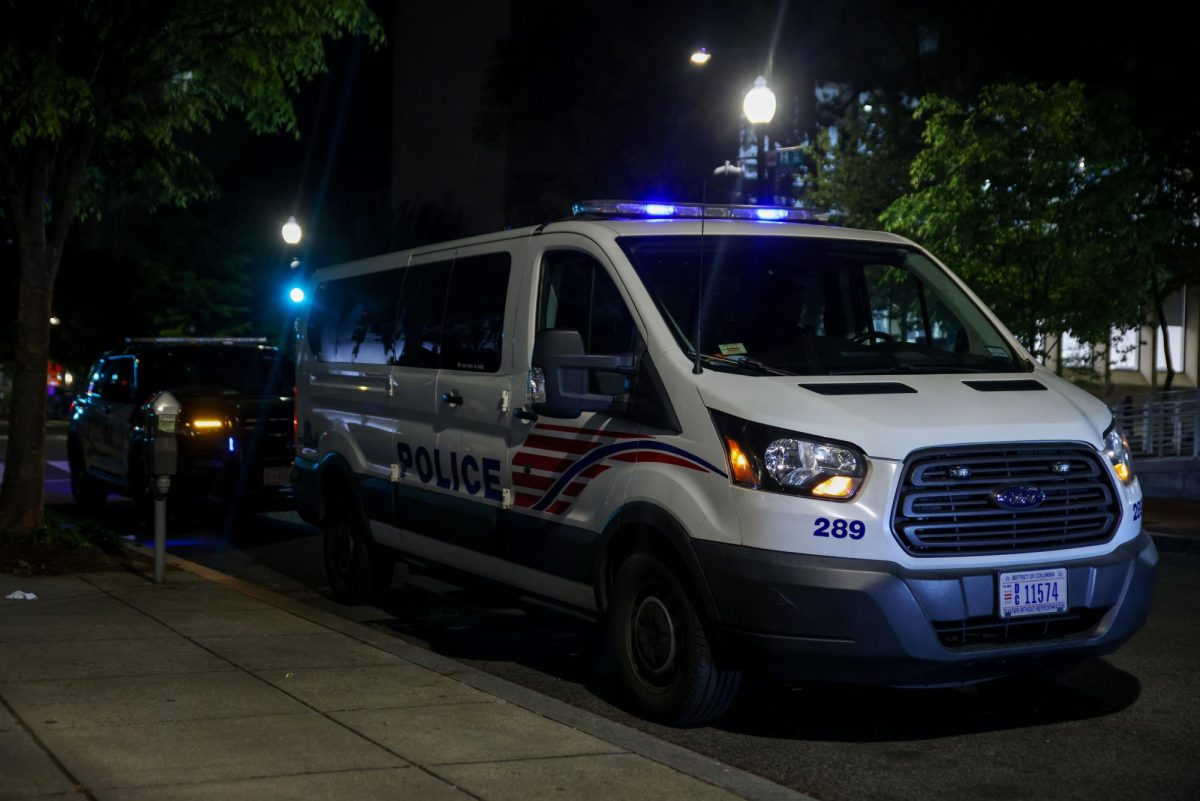For many faculty, the one-year anniversary of President Donald Trump’s election has meant a year of adjusting courses to keep up with rapid and unprecedented political developments.
Faculty said discussions on topics raised during Trump’s first year in office, like checks and balances and the role of media in society, have become fixtures in class discussions. Professors said these conversations connect material from their classes to the real world and help both students and faculty come to grips with a presidency that has defied political convention.
Jill Kasle, an associate professor of public policy and public administration, said her constitutional law course has shifted in the last year to focus more on the limits of executive power given Trump’s tendency to use executive orders to enact this agenda.
Kasle said it has been “impossible to ignore” what is happening in society since Trump’s election. Her class focuses on how presidential power factors into the system of checks and balances among the three branches of the federal government.
For her first midterm this fall, Kasle said she tested students on the legality of Trump’s decision in July to ban transgender people from serving in the military. The class has also discussed how Trump has used his pardon power compared to previous presidents.
Trump raised eyebrows in August when he pardoned Joe Arpaio, a former Arizona county sheriff who was convicted of illegally targeting undocumented immigrants in enforcement activities, even before he was sentenced.
“We talked about whether President Trump’s use of the pardon power conformed to the way past presidents had done it, whether the way President Trump did it was new, and the implications of that and so on,” she said.
After Trump’s upset election victory elicited an emotional response from many students, who spoke out against the result through protests and vigils, faculty altered class discussions to give students time to process the results. Students also reported considering potential career changes, including avoiding working in Trump’s executive branch.
Steven Livingston, a professor of media and public affairs, said professors have a “pedagogical responsibility” to include current events in their course discussions.
“These are the pressing matters of our day, and GW students come to Washington, D.C. and GW to be in the midst of the pressing issues of our day,” he said.
In January, as Trump made media attacks a staple of his young presidency, faculty in the School of Media and Public Affairs said they envisioned an elevated role for the school during the Trump White House and scrambled to prepare aspiring journalists for the political climate.
Livingston said he was making sure that students in his class understood Trump’s connection to larger populist movements in countries like Turkey or Poland, where leaders have shown opposition to many tenants of a democratic society like freedom of speech and of the press.
“Trump has introduced a range of political discourse and ideas that exceed the norms,” he said. “Now we found ourselves secondly as political scientists trying to understand and really take onboard the idea that he is playing in ways or governing in ways that go outside of the boundaries of conventional norms of liberal democracy.”
Other professors said their courses needed to adjust to the high volume of major news events over the last year.
Gregory Squires, a professor of sociology, public policy and public administration who teaches the dean’s seminar “Poverty, Place, and Race,” about how racial demographics impact someone’s standing in society, said he’s incorporated discussions about issues raised by Trump’s rise to the presidency since the election.
“I’m constantly updating the syllabus and the readings to try and reflect what the current debates are,” Squires said. “What I am discussing now is probably a little different than it would have been if Hillary Clinton had won the election.”
Although it is often important to discuss public policy and its impact on students in the classroom, Squires said it shouldn’t be framed as an attack on a particular party or ideology, but rather an informed, open debate about issues relevant to the course.
“I think that it’s important that diverse perspectives be respected and be presented in the classrooms,” he said. “In my classes I encourage students to make arguments and offer perspectives that are grounded in the literature and in the social science research.”
But other faculty in departments like economics said because of Trump’s relatively modest impact on policy so far in his term, it wasn’t necessary to change syllabi to cover his administration.
Joseph Pelzman, a professor of economics and international affairs, said he didn’t need to change his Trade Law class because the administration’s potential impact on trade is still speculation and there is no specific impact to measure.
“For us, I mean right now he hasn’t done anything except for say things,” Pelzman said. “So until he does something I don’t really deal with it.”





